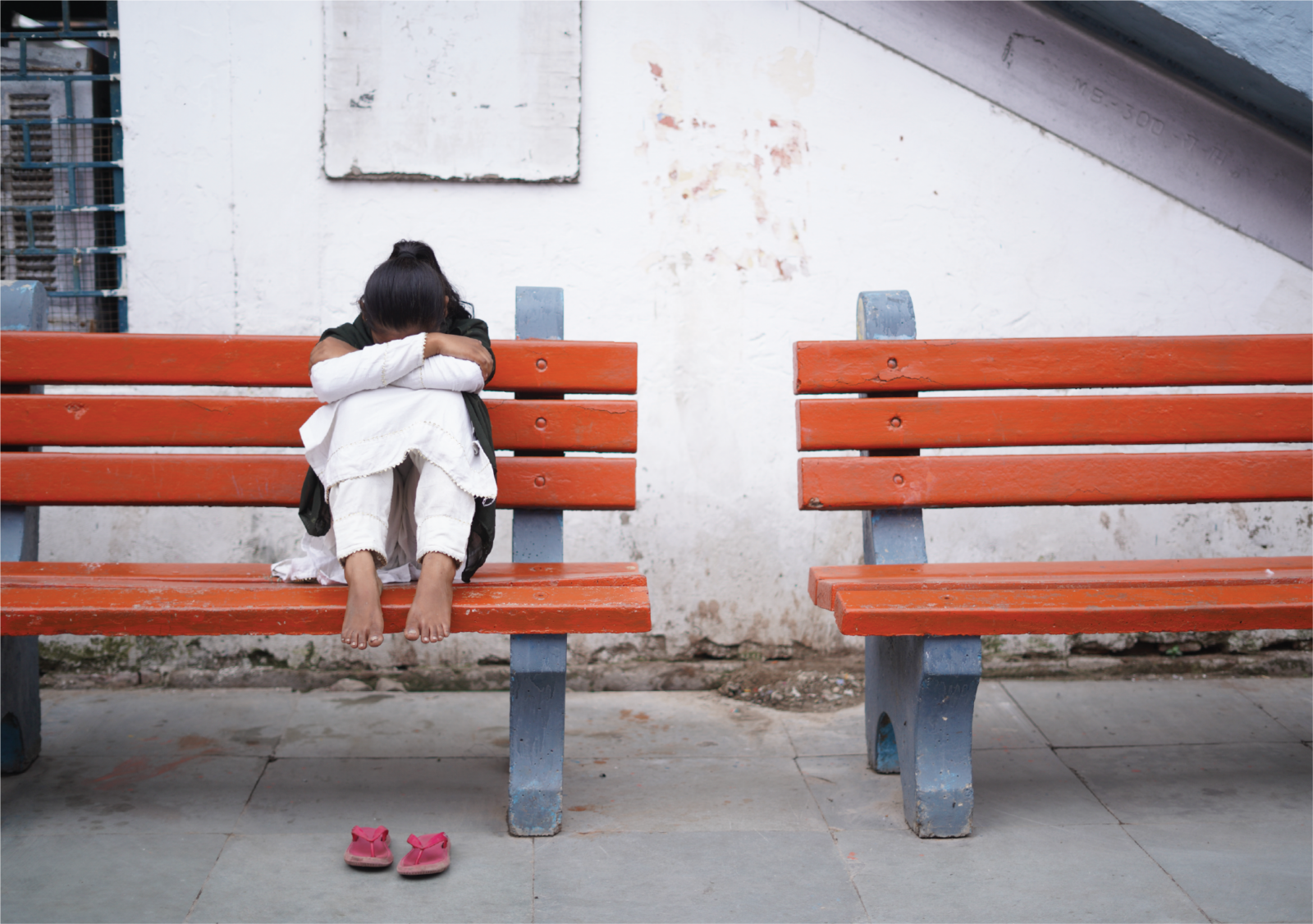Not her school bus,
Not her workplace,
Not her friend,
Not her father,
No place feels her own, no person feels known
Why does her gender take away her happiness,
only to leave her forlorn?
All over the world, girls are targets of countless violent crimes only because they are girls.
A family’s honor is dependent on the early marriage of a girl; a boy’s uncontrolled urge is triggered by a girl’s clothes; a father’s work frustration finds an outlet in the abuse of his daughter;
a trafficker’s greed too relies on quashing a girl’s freedom.
Yes, these are disheartening, yet every day, instances that catch your eye in the newspaper or on social media, but rooted in discrimination and patriarchy, these acts are referred to as acts of Gender-Based Violence.
According to the World Health Organization, gender-based violence is a global public health, gender equality and human rights priority. While young girls across all spheres of life face violent crimes, girls hailing from disadvantaged communities or those inhabiting conflict zones face a particular challenge when the question of vocalizing the injustice meted out to them arises. Their voices are stifled, with close to no post-trauma support available to them. Furthermore, they lack access to essential services such as healthcare and nutrition, making recovery an uphill challenge for them.
Calling out to prevent and eliminate these recurring acts of violence against women and girls is the international campaign 16 Days of Activism against Gender-Based Violence.
Started by activists in the year 1991, this international campaign begins on 25th November, which is the International Day for the Elimination of Violence against Women, and concludes on 10th December, which is Human Rights Day.
During this symbolic period of 16 days, numerous organizations across the globe partake in a global movement spreading awareness about and campaigning to end gender-based violence. Recognizing the varied forms of discriminatory practices meted out to women and girls, this intersectional campaign calls for an end to gender-based violence against women and girls of all ages, ethnicities, faiths, immigration status, physical and mental ability, and socioeconomic status.
In the year 2008, the United Nations Secretary-General supported this revolutionary civil society initiative with a campaign—the UNITE by 2030 to End Violence against Women.
Further supporting the cause, team Railway Children India kickstarts an insightful campaign capturing and detailing the varied acts of violence specific to India’s little girls. Right from child marriage and child labor to female infanticide and domestic violence, the campaign captures the widespread prevalence of these issues even in 2024.
On the field, team Railway Children India takes the concept of gender and gender roles to adolescent girls and boys of distant, disadvantaged communities of Delhi and Ghaziabad. Through the medium of discussion groups coming together at our numerous Child Activity Centers, our team conducts routine gender sessions where issues such as child marriage are demystified and gender equality is communicated.
In a recent session of gender session held for Tulsi Nagar’s Power Girls—a group of passionate adolescent girls inhabiting the community, the girls discussed the social conditioning they experience everywhere. More interestingly though, after the session, girls claimed to have their gender roles shattered, with the realization that wearing a salwar kameez does not make someone a good girl, and wearing jeans and top doesn’t make someone a bad girl either. Long hair and bangles are not staple choices for all girls and yes, girls are allowed to dream big, very big!
Together, let’s unshackle girls from the imposed gender roles and protect them from gender-based violence with 16 Days of Activism.






